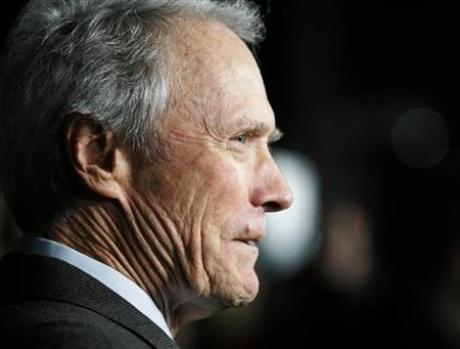

 |
|
Director Clint Eastwood is interviewed at the Los Angeles premiere of his film ''Invictus'' in Beverly Hills, California December 3, 2009.[Photo/Agencies] |
"The UKFC was instrumental in providing to us the crucial, detailed information we needed to make our decision to ultimately shoot in the UK," Eastwood wrote, referring to the making of his latest movie "Hereafter," starring Matt Damon.
In a letter addressed to Osborne and co-signed by producer Robert Lorenz, the director said the council advised on issues including Britain's tax credit system and the availability of crews.
"Without such assistance during the early stages of pre-production ... the likelihood of a London shoot would have been greatly diminished."
The letter follows a similar written appeal published in the Telegraph newspaper last week and signed by more than 50 actors including James McAvoy and Emily Blunt. The Conservative-Liberal Democrat coalition is seeking savings to address a record budget deficit, and departments are facing cuts of some 25 percent in a spending review to be announced in October.
MINISTER DEFENDS POSITION
Culture Minister Jeremy Hunt has defended his decision to abolish the Film Council, which had a staff of 75.
"Stopping money being spent on a film quango is not the same as stopping money being spent on film," he wrote in the Observer weekly on Sunday, adding that the film tax credit, seen by the industry as key to attracting movies to Britain, would stay.
He also took aim at the salaries of Film Council employees, adding: "It is simply not acceptable in these times to fund an organization like the UK Film Council, where no fewer than eight of the top executives are paid more than 100,000 pounds."
Most producers and directors who spoke publicly about the move have criticized Hunt, arguing that the council's support had helped build the British film industry into a world leader.
Kevin Loader, producer of political satire "In the Loop" and John Lennon biopic "Nowhere Boy," said he was concerned about how the 15 million pounds in annual funding would be distributed without the Film Council's expertise.
Although a relatively small amount in an industry where a single major blockbuster can cost hundreds of millions of dollars to make and market, it was key to smaller productions.
In the Loop, for example, received around 500,000 pounds from the fund out of a total budget of around 3.5 million.
"It might not have been made (without that contribution), or we certainly would have had to change the ambition of that film," Loader told Reuters.
But he added that preserving the film tax credit and the level of government funding were more important to the industry than the survival of the Film Council itself.
"From my point of view, and that of many others in the industry, the key thing is that it's crucial the tax credit remains at the current level and lottery funding remains at least at current levels," he said.